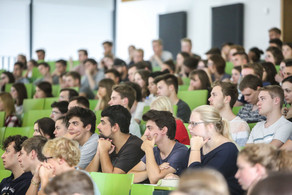Topic: Test fairness regarding gender

Gender differences in cognitive abilities are among the most discussed and researched topics in differential psychology. Especially when performance tests are the basis for important decisions in practice - for example, in personnel selection - gender-fair measurement is indispensable. Ensuring gender-fair measurement is also essential for research, for example, in quantifying gender differences or in identifying factors that influence the emergence of gender differences. In the Department of Educational and Differential Psychology at the TU Dortmund University, we are therefore investigating, in cooperation with colleagues from Heidelberg, Lüneburg, and Marburg, to what extent different measurement instruments for assessing cognitive performance as well as different test types (e.g., speed vs. power tests) actually enable gender-fair measurement. In a recent study with almost 1000 adolescents published in the journal Intelligence, we were able to show that a substantial part of the items from the knowledge test of the Intelligence Structure Test 2000 R showed differential item functioning, which favored boys in the measurement. When all items with a bias were removed, the gender difference was reduced by more than half. Hereby, we were able to make an important contribution to explaining the repeatedly replicated better performance of boys or men in general knowledge tests. Gender differences in favor of boys or men in numerical intelligence have been found just as frequently, although the size of this difference depends particularly strongly on the recording method. We are currently investigating to what extent and why time restrictions in numerical intelligence instruments prevent girls, but not boys, from reaching their full performance potential.
Contact persons: Jun.-Prof. Dr. Sebastian Bergold and Prof. Dr. Ricarda Steinmayr





